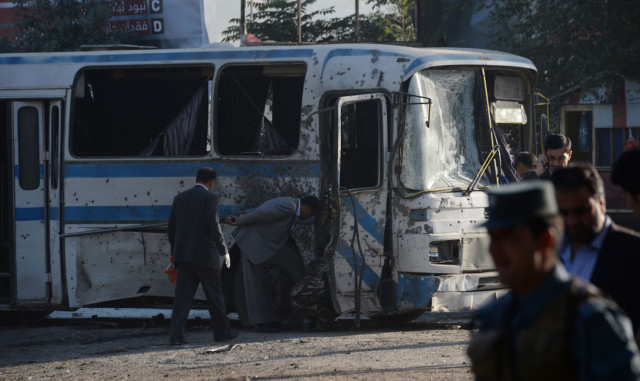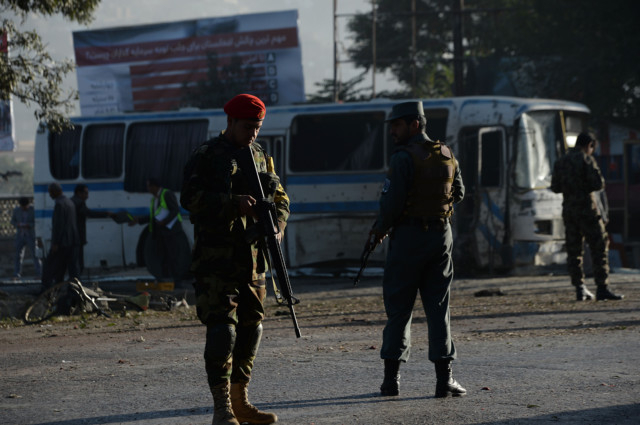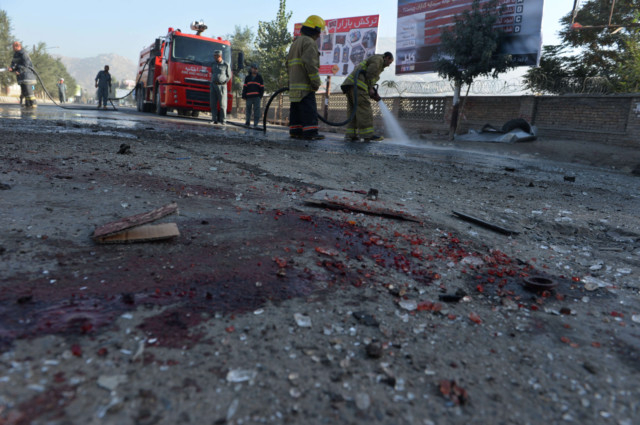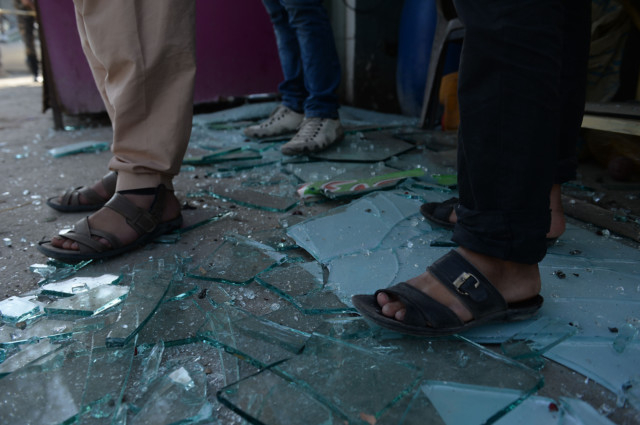
KABUL: Two Taliban suicide bombers hit army buses in Kabul on Wednesday, killing at least seven people in a coordinated attack, officials said, a day after the new Afghan government signed a deal for US troops to stay in the country.
The Taliban, who strongly opposed the agreement with the US, claimed responsibility for the early-morning twin blasts that targeted vehicles taking military employees to work in the capital.
“There have been two suicide attacks targeting buses carrying Afghan national army personnel,” Farid Afzali, chief of the city’s police investigation department, told AFP.
“Six military personnel and one civilian were killed in one attack, and 15 were injured. Four military personnel were injured in the other attack.”
Ministry of Defence spokesman General Zahir Azimi confirmed the death toll and injured.
There were conflicting reports on whether the attackers were on foot or driving cars laden with explosives.
The Taliban claimed responsibility for both blasts and said at least 20 soldiers were killed, but the insurgents regularly exaggerate death tolls after attacks.
“This is a clear message to the stooge government that signed the slave pact, and we will step up our attacks after this,” Taliban spokesman Zabihullah Mujahid told AFP.
Afghanistan and the United States on Tuesday signed the long-delayed bilateral security agreement (BSA) to allow about 10,000 US troops to stay in the country next year.
The signing took place on newly-inaugurated President Ashraf Ghani’s first day in office and represented a major step towards mending frayed ties between Kabul and Washington.
Taliban threat
Hamid Karzai, who stood down as president on Monday, had refused to sign the deal in a dispute that underlined rocky Afghan-US relations over recent years.
US-led NATO combat operations in Afghanistan will finish at the end of this year, and the Taliban have launched a series of recent offensives that have severely tested Afghan soldiers and police.
NATO’s follow-up mission, which will take over on January 1, will be made up of 9,800 US troops and about 3,000 soldiers from Germany, Italy and other member nations.
The new mission - named Resolute Support - will focus on supporting Afghan forces as they take on the militants, in parallel with US counter-terrorism operations.
President Barack Obama welcomed the troop deal, saying it was an historic day.
He said it provided “the necessary legal framework to carry out two critical missions after 2014: targeting the remnants of Al-Qaeda and training, advising, and assisting Afghan National Security Forces.”
The Taliban have often targeted buses that take government and military personnel to work every morning in Kabul, despite efforts by security forces to provide protection for the vulnerable vehicles.
In July, eight military officers were killed in a similar attack on an air force bus in Kabul.
A Taliban suicide bomber also rammed an explosives-laden car into a NATO convoy near the US embassy last month, triggering a blast that killed two Americans and one Polish soldier as well as wounding at least 13 civilians.
After month of disputes over election fraud, Ghani agreed to a power-sharing deal with his poll rival Abdullah Abdullah, who has taken up the new role of chief executive.
The inauguration marked the country’s first democratic transfer of power, although the UN said the election was beset by “significant fraud”.















